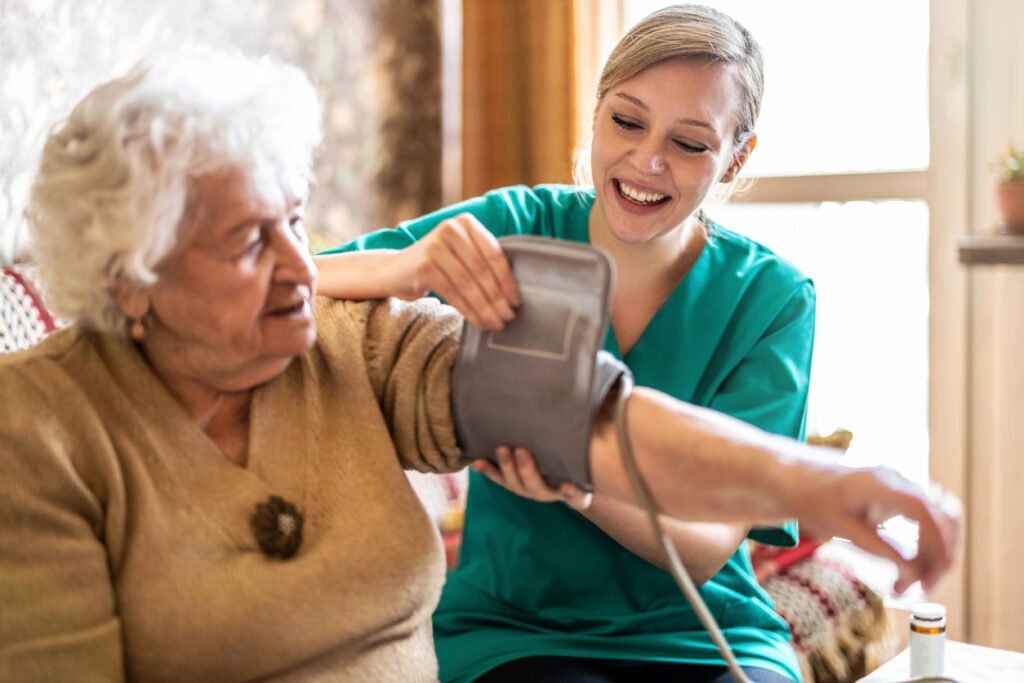Alcohol abuse isn’t just a problem for those under 60. Alcohol and drug abuse, whether you are 25 years old or 75 years is often used to cope with grief, anxiety, depression or pain. Here’s what you should know about recognizing substance abuse in older adults and options on where to turn for help.
The National Institute on Alcohol Abuse and Alcoholism found that 20-30% of people ages 75 to 85 have experienced drinking problems and according to the Substance Abuse and Mental Health Services Administration, 2% of older adults in retirement communities use illicit drugs. While the use of illegal drugs by older adults, such as marijuana appears to be low, it does occur. Typically, older adults who currently use marijuana used it throughout their lives.
The abuse of medications to treat chronic illnesses or pain and the use of over-the-counter medications is difficult to identify in older adults. On average, older adults take four to nine pills per day between their prescription drugs and over-the-counter medications. The overuse of prescribed medications or combining medications with alcohol or other controlled substances can lead to serious and often fatal consequences, such as:
- Falls
- Cognitive problems
- Sleeping problems
- Depression
- Adverse reactions that have the potential to be fatal
It is vitally important that older adults be forthcoming with their medical team about all the medications they are taking, both prescribed and over-the-counter. It is also imperative that they disclose the amount they are ingesting and their alcohol and drug intakes. If an older adult becomes hospitalized and the medical team in the hospital does not know that he/she has a drug habit or alcohol problem, the withdrawal symptoms could be seen as anxiety, delirium or an adverse reaction to medication.
It is easy to confuse a substance abuse problem with age related issues. The following are warning signs that can help families and friends determine if a loved one might have a substance abuse problem:
- Changes in sleep patterns and/or appetite that cannot be attributed to other reasons
- Increased falling and unexplained bruises
- Using multiple physicians for the same medical concerns
- Filling prescriptions at pharmacies where data is not connected, i.e.—going to Walgreens, CVS and Wal-Mart with the same prescription from different physicians
- New onset irritability or agitation
- Periods of confusion
- Empty liquor or wine bottles in the trash
Unfortunately, health care providers often overlook substance abuse among older adults because they don’t know what to look for or they mistakenly assume that older adults cannot be successfully treated or they can’t imagine a sweet 80 year gray-haired grandmother is really a closet alcoholic. Loved ones, too, may excuse an older relative’s substance abuse as a result of grief or loss or a reaction to boredom-it difficult to discuss substance abuse with your parent and even more difficult to get them to treatment for the abuse.
The good news, however, is that once in treatment, older adults are more successful at getting and staying sober. Some might feel this might be their last chance to get it right, and they aren’t going to let themselves fail. Others are motivated by their children or grandchildren and by the desire to create a positive legacy for their family.
Typically older adults benefit the most from a treatment program that is geared toward their age group. They have different needs, different issues, and different ways of recovering than younger individuals. Like all of us, older adults relate better to others similar to them, and support groups and therapy sessions are often more beneficial when the participants are close in age.
Also, many older adults have more chronic health issues than younger people and the treatment staff should be specialized to deal with the medical issues of older adults. A high-quality treatment program geared to older adults will allow them to recover in a peaceful, quiet setting, while their specific needs are addressed.
The post appeared first on Kansas City Home Care.
REQUEST FREE
IN HOME ASSESSMENT
REQUEST FREE IN HOME ASSESSMENT
We will get back to you as soon as possible.
Please try again later.







Kansas City Homecare provides caregiver support services for seniors who need assistance with everyday living and want to live in their home. Our visiting caregivers can provide meals, implement health programs, run small errands and assist with light housekeeping. We are your choice for premium in-home care in the Kansas City area.
We serve Kansas City, Leawood, Mission Hills, Lee's Summit, Overland Park, Lenexa and Olathe.


